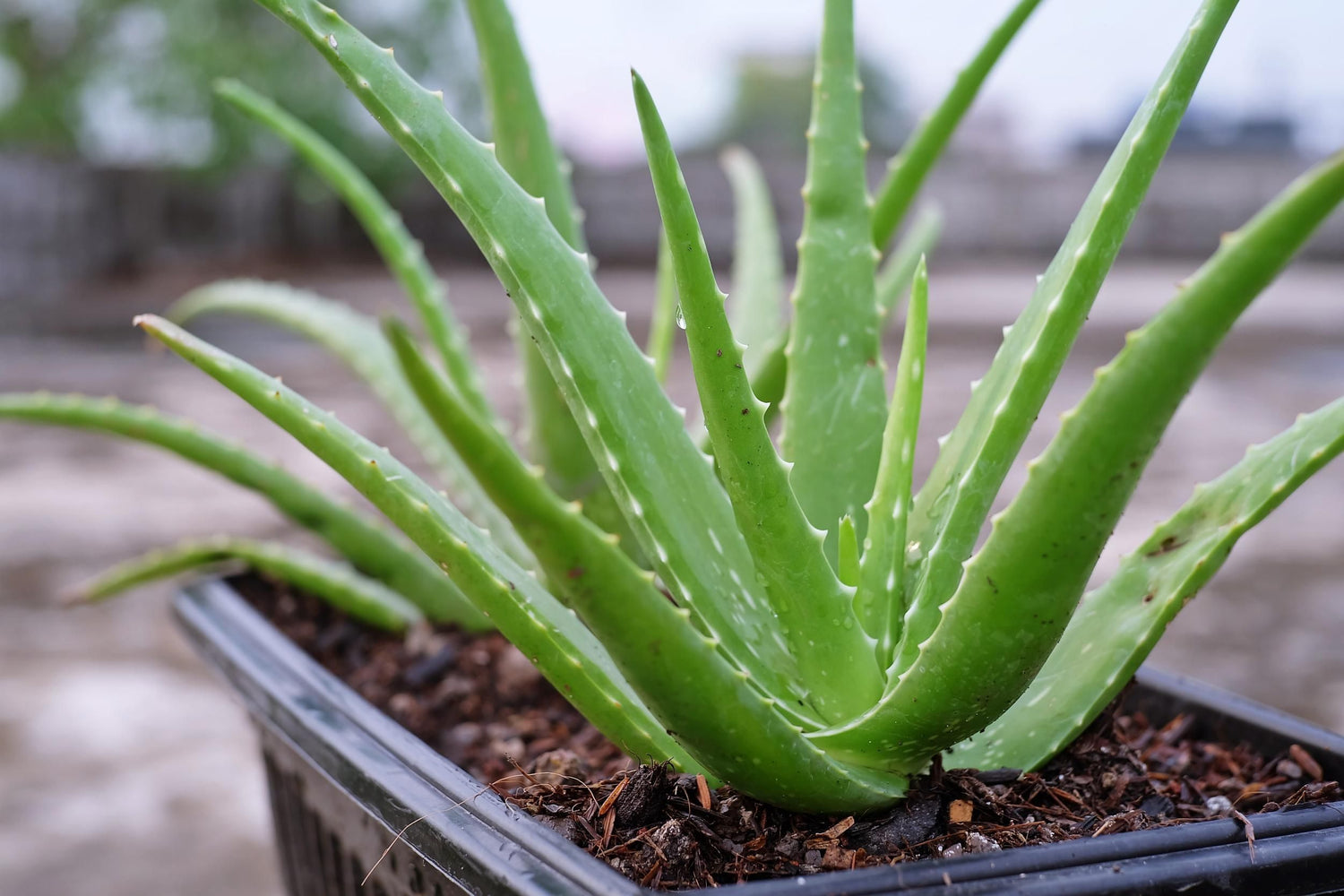Aloe vera is widely known for its soothing and healing properties, especially when it comes to skin care and sunburn relief. However, this versatile plant has much more to offer, especially when it comes to digestive health. Aloe vera’s rich nutrient content, anti-inflammatory properties, and ability to improve gut function have made it a popular natural remedy for various digestive issues.
In this article, we'll explore how aloe vera can support your digestive system, the potential health benefits it offers, and how you can safely incorporate it into your diet.
Aloe Vera and Its Digestive Benefits

The inner leaf gel of aloe vera contains more than 75 active compounds, including vitamins, minerals, enzymes, amino acids, and antioxidants. These compounds work together to offer a variety of health benefits, particularly when it comes to digestion.
1. Supports Digestive Regularity
One of the primary ways aloe vera helps improve digestive health is by promoting regular bowel movements. Aloe vera contains anthraquinones, natural compounds that have a laxative effect. These compounds stimulate the intestines and increase water content in the bowel, which helps relieve constipation.
By acting as a natural laxative, aloe vera can help promote regular bowel movements and prevent discomfort associated with constipation. However, it's important to use aloe vera in moderation, as excessive use can lead to diarrhea and dehydration.
Also Read- Aloe Vera In Culinary Uses: Delicious Recipes And Health Benefits
2. Reduces Inflammation in the Gut
Aloe vera is well-known for its anti-inflammatory properties, which are beneficial not only for the skin but also for the gut. Chronic inflammation in the digestive tract can contribute to conditions like irritable bowel syndrome (IBS), ulcerative colitis, and other gastrointestinal disorders.
Aloe vera contains polysaccharides and enzymes that help reduce inflammation in the digestive system. These compounds work by soothing the lining of the intestines and promoting the healing of any damaged tissue. For people with inflammatory gut conditions, consuming aloe vera juice or supplements may provide relief from symptoms such as bloating, cramping, and pain.
3. Aids in Digestion and Nutrient Absorption

Aloe vera contains several enzymes that are essential for breaking down food in the digestive system. These enzymes include amylase (which helps digest carbohydrates) and lipase (which helps digest fats). By aiding the digestive process, aloe vera can enhance the body’s ability to absorb nutrients more efficiently.
In addition to enzymes, aloe vera contains lignin, a natural fiber that supports digestion and helps improve gut motility. This means that food moves more efficiently through the digestive tract, reducing the chances of bloating, gas, and indigestion.
4. Helps Maintain Gut Flora Balance
Maintaining a healthy balance of gut bacteria is essential for overall digestive health. Aloe vera’s ability to reduce inflammation and promote digestion indirectly supports the balance of gut flora. Furthermore, some studies suggest that aloe vera may act as a prebiotic, providing nourishment for the beneficial bacteria in the gut.
By encouraging the growth of healthy gut bacteria, aloe vera helps improve digestion, supports the immune system, and reduces the risk of gastrointestinal infections.
Also Read- The Environmental Benefits Of Growing Aloe Vera At Home
5. Provides Relief for Acid Reflux and Heartburn
Aloe vera’s soothing properties make it an effective natural remedy for acid reflux and heartburn. Its cooling effect can help reduce the irritation caused by stomach acid in the esophagus. Additionally, aloe vera helps reduce the production of stomach acid, providing relief from the burning sensation associated with acid reflux.
Several studies have shown that consuming aloe vera juice before meals can significantly reduce symptoms of gastroesophageal reflux disease (GERD) and improve overall digestion. For individuals seeking a natural remedy for heartburn, aloe vera may provide a gentler alternative to over-the-counter antacids.
Also Read- Aloe Vera And Weight Loss: Myths, Facts, And Practical Tips
How to Use Aloe Vera for Digestive Health
If you're interested in using aloe vera to improve your digestive health, there are several ways to incorporate it into your diet:
1. Aloe Vera Juice
Aloe vera juice is one of the most common forms of aloe consumption. You can find commercially available aloe vera juice at health food stores, or you can make your own by extracting the gel from fresh aloe vera leaves and blending it with water or fruit juice.
Start with a small amount, about 1-2 tablespoons per day, and gradually increase your intake if needed. Be cautious not to consume too much, as excessive intake can lead to digestive discomfort or diarrhea.
2. Aloe Vera Gel
Aloe vera gel can be extracted directly from the plant’s leaves and consumed orally. Simply cut an aloe vera leaf, scoop out the gel, and add it to smoothies, juices, or water. This gel contains the active compounds that support digestive health.
3. Aloe Vera Supplements
If you prefer a more convenient option, aloe vera supplements are available in capsule or tablet form. These supplements contain concentrated doses of aloe vera and are ideal for those who want to avoid the taste of aloe vera juice.
Precautions When Using Aloe Vera for Digestion
While aloe vera offers numerous digestive benefits, it’s important to use it responsibly:
- Start with small doses: Begin with small amounts of aloe vera juice or gel to see how your body reacts.
- Avoid overconsumption: Excessive use of aloe vera, especially anthraquinone-containing products, can cause diarrhea, electrolyte imbalances, and dehydration.
- Consult a doctor: If you have a pre-existing digestive condition or are taking medication, consult with your healthcare provider before adding aloe vera to your routine.
Conclusion
Aloe vera is a powerful plant with many health benefits, particularly when it comes to improving digestive health. Its natural laxative properties, anti-inflammatory effects, and ability to aid digestion make it a valuable addition to a gut-friendly diet. Whether you're looking to relieve constipation, soothe inflammation, or balance your gut flora, aloe vera can be an effective and natural solution.
When used responsibly, aloe vera can support overall digestive health and help you maintain a healthy gut, promoting better absorption of nutrients and overall well-being.













Leave a comment
This site is protected by hCaptcha and the hCaptcha Privacy Policy and Terms of Service apply.